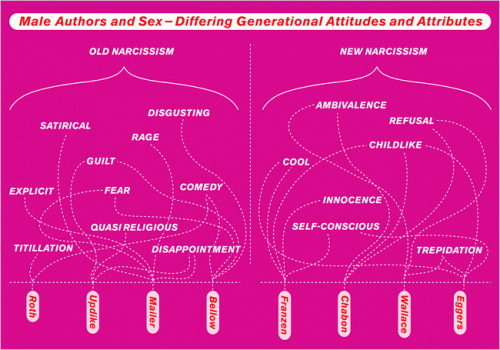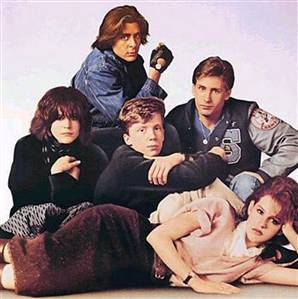I WANT TO PAY A LOT FOR PREMIUM DIGITAL CONTENT
let me pay for premium online content.
i tried to get a digital-only subscription to the new yorker. but it doesn’t exist. i want it in my car service when i leave my advertising agency at 10:30 pm. i am always busy. i need speed and i desire information. i want to have access to that content in a fluid way.
i would pay 100 dollars a year for a digital subscription to the new yorker. 30 dollars more than the physical paper subscription price.
i want to read a digital version of vanity fair on my phone and not have to throw away a physical magazine. when i am in the hamptons, i want this very much.
let me pay.
A Review of Your Review: Ben Mirov Reviews Jeff Gordinier’s Review of Chris Martin’s BECOMING WEATHER
 My friend Amy Lawless showed me this review of Becoming Weather by Chris Martin in the New York Times (scroll to the bottom of the article). Here is my review of the review, beginning with an excerpt from the review:
My friend Amy Lawless showed me this review of Becoming Weather by Chris Martin in the New York Times (scroll to the bottom of the article). Here is my review of the review, beginning with an excerpt from the review:
“No, the author of “Becoming Weather” is not the same Chris Martin who is the frontman of Coldplay and the husband of Gwyneth Paltrow. But it’s easy to see how you might leap to that assumption, because what you often find here are the kind of well-intentioned ruminations — “The people I love / lack something sufficient / for the violence of this world” (oh, buck up, people!) — that you might expect from a pop star who lets verse pour forth in his dressing room between bites of a vegan corn dog.”
Get Me Up Close To the Lives of Others
Anytime an essay’s title riffs on a variation of “The Problem With [insert perceived source of a problem],” there is likely to be a problem. It is a provocative way to begin a conversation, surely, and provocation is often useful to instigate discussion but when there’s “a problem” with something, vague generalizations are likely to follow. In the Sunday Book Review this week, Neil Genzlinger wrote an essay, “The Problem With Memoirs,” where he takes issue with this “age of oversharing.” He writes, “There was a time when you had to earn the right to draft a memoir, by accomplishing something noteworthy or having an extremely unusual experience or being such a brilliant writer that you could turn relatively ordinary occurrences into a snapshot of a broader historical moment,” as if there should be a vetting process for who is or is not eligible to write a memoir.
For a long time, I was fairly skeptical of memoirs and did not necessarily see the utility in reading an accounting of someone else’s memories, particularly when those memories seemed to come from an ordinary life or a life not yet fully lived, as is the case for young memoirists. I understand Genzlinger’s frustration but his lament felt a bit narrow and shortsighted. When a very young person writes a memoir, I often wonder what they could have possibly learned, but that attitude is not necessarily fair, particularly because people often mistake memoirs for autobiographies and they are not the same thing. As I understand them, autobiographies recount the entirety of a life lived. Memoir, which takes its meaning from the Latin memoria, to reminisce, is about a moment or series of moments in time that might speak to something greater. Memoirs are more intimate in scope. A memoir tells a close story so it is not surprising then that memoirs are written by people of all ages, whether they have accomplished something noteworthy (a relative concept) or had an unusual experience (also relative), or not.
On Self-Publishing, Prodigies, Loving Books, Memory, and Transcendence
More people are self publishing. Same story, different newspaper. One interesting line: “If you write a book, you are an expert,” says Dr. Martin, who spent roughly $40,000 to publish and market five books, including “Are Your Teeth Killing You?” and “This Won’t Hurt a Bit.”
More people are self publishing. Same story, different news outlet. One interesting line: “In today’s tight traditional publishing market, agents, editors, and publishers are now encouraging authors to test market their book by self-publishing.”
Child prodigies are terribly interesting to me so I quite enjoyed this fantastic essay about Barbara Rogers née Follett. One interesting line: “‘In a multitude of ways,” Wilson Follett reported, “we become more and more convinced of the expediency of letting the typewriter be, so far as a machine can, the center and genesis of the first processes.’”
Susan Orlean has a fine bit of an essay here about loving all manner of books and the battle between reading and, well, everything else. One interesting line: “I think the only real battle is between the challenge of getting people to read and the fact that many other pastimes are easier, quicker, and more passive than reading.”
Did you know there’s a memoir about a woman who loved Little House on the Prairie and started adopting some of the LHOP lifestyle? The book is called The Wilder Life and will be out in April 2011. Yes, I am all over this and will be reporting back, come April 11, 2011.
In the Los Angeles Times, David Ulin writes on how we can make the most of both books and e-books. One interesting line: “Their physicality is part of their function; they are meant to be held as well as read.”
The editors of the New York Times Sunday Book Review introduce why criticism matters, then give the platform over to six “accomplished” critics: Stephen Burn, Katie Roiphe, Pankaj Mishra, Adam Kirsch, Sam Anderson, and Elif Batuman.One interesting line, from Batuman’s essay, “Negative criticism is particularly exciting, not only because of schadenfreude, but because once limitations are identified, we glimpse how to transcend them.”
2010 has been recapped for our benefit and here is a megalist of “Best of 2010” lists. Happy New Year, everyone!
Choice Gleanings from the Times Book Review

As he writes about old men failing at sex, and raging about failing at sex, we see the old writer failing at writing about sex, which is, of course, a spectacle much more heartbreaking. […] The younger writers are so self-conscious, so steeped in a certain kind of liberal education, that their characters can’t condone even their own sexual impulses; they are, in short, too cool for sex. Even the mildest display of male aggression is a sign of being overly hopeful, overly earnest or politically untoward. For a character to feel himself, even fleetingly, a conquering hero is somehow passé.
from The Naked and the Conflicted: Sex and the American Male Novelist, by Katie Roiphe. If you like her article, she’s also on the podcast.
Also in the Review this weekend- the magnificent Arthur C. Danto, on a new book about Tiepolo, the legendary Frank Kermode on a new translation of the Hebrew Bible by David Rosenberg, and the Nonfiction Chronicle is rather unkind to Daniel Nester, though I can sort of see using ” ‘He’s Annoying’ –The New York Times” as a blurb. Chuck Klosterman and Stephen Elliott don’t fare much better. Seems like the only book Gregory Beyer liked was Richard Rushfield’s memoir of attending Hampshire College in the late ’80s. Yeah.
January 2nd, 2010 / 4:28 pm
Molly Ringwald NYT Op-Ed: Remembering John Hughes
 My friend, Jacob, at a bar tonight in Hong Kong (I’m back stateside this Sunday, if anyone’s keeping track) told me I had to go look this up. I’m drunk now, and my belly is full of spicy lamb kebab, but I did it anyway, and I’ve got to say, it’s a pretty beautiful, heartfelt, honest remembrance. If you’re only going to read one John Hughes memorial, make it this one.
My friend, Jacob, at a bar tonight in Hong Kong (I’m back stateside this Sunday, if anyone’s keeping track) told me I had to go look this up. I’m drunk now, and my belly is full of spicy lamb kebab, but I did it anyway, and I’ve got to say, it’s a pretty beautiful, heartfelt, honest remembrance. If you’re only going to read one John Hughes memorial, make it this one.

